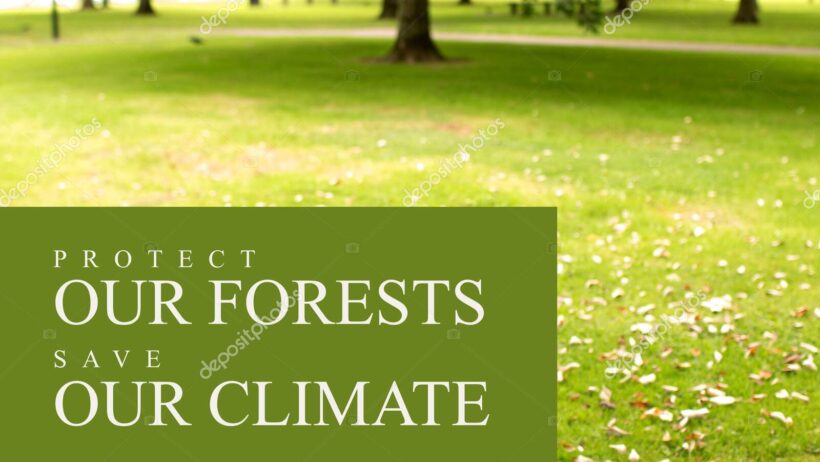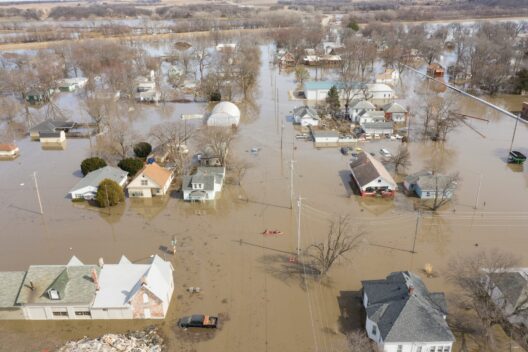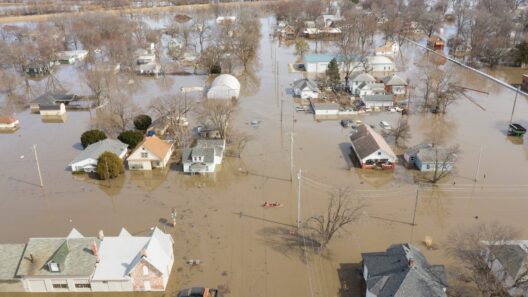Forests are the lungs of our planet. They absorb carbon dioxide, provide oxygen, and support a remarkable array of biodiversity. However, these invaluable ecosystems are facing unprecedented threats from human activities, placing both their existence and our climate at grave risk. The intricate relationship between forests and climate stability is profound, yet many individuals remain oblivious to the grim reality. Understanding this dynamic is crucial, not just for advocates of environmentalism, but for everyone who shares this planet.
Globally, forests cover approximately 31% of the Earth’s land surface. However, deforestation—driven by agriculture, logging, and urban expansion—has become rampant. Reports indicate that we are losing around 10 million hectares of forest each year. This attrition diminishes the planet’s ability to sequester carbon, exacerbating the greenhouse effect and accelerating global warming. As forest cover shrinks, the carbon stored within trees is released back into the atmosphere, culminating in a potent feedback loop that intensifies climate change.
Forests act as critical carbon sinks. Through the process of photosynthesis, trees absorb carbon dioxide from the atmosphere and transform it into organic matter. This natural process is vital for regulating atmospheric CO2 levels. To contextualize, one mature tree can absorb approximately 48 pounds of CO2 annually. Multiply that by the number of trees in a forest, and the impact on carbon sequestration becomes monumental. When we obliterate these trees, we not only eliminate their carbon-absorbing abilities but also release stored carbon back into the environment. Consequently, deforestation is a direct contributor to increased atmospheric CO2 concentrations, which is a primary driver of climate change.
Besides acting as carbon sinks, forests provide critical habitat for an astounding variety of flora and fauna. About 80% of terrestrial biodiversity resides in forests. The loss of these ecosystems leads not only to the extinction of species but also to the destabilization of entire ecological systems. This loss of biodiversity can impair ecosystem services—like pollination, water purification, and soil health—that are essential for sustaining human life and the health of the planet. As species are pushed to the brink of extinction, their invaluable roles in maintaining ecological balance are irreparably diminished.
The social dimensions of deforestation cannot be ignored. Indigenous populations worldwide rely on forests for their livelihoods, cultural identity, and spiritual practices. As forest areas are demolished for commercial gain, these communities face displacement, loss of traditional knowledge, and disruption of their way of life. The intersection of environmental degradation and social injustice reveals that the consequences of deforestation extend far beyond ecological harm; they also encompass human rights violations. The plight of Indigenous communities underscores the urgency of forest preservation as not just an ecological issue, but a humanitarian one.
The economic ramifications of deforestation are also significant. While immediate profit-driven motivations may drive industries to exploit forest resources, the long-term costs are often overlooked. The financial implications of climate change, such as increased natural disasters, crop failures, and health crises, will require enormous investment to mitigate. By prioritizing short-term economic gain over sustainable practices, we risk plummeting into an era of environmental disaster that threatens economies worldwide. Restoration of deforested areas is often more expensive than maintaining healthy forests, underscoring the need for preventive strategies over reactive ones.
A paradigm shift in our approach toward forests is essential. Recognizing forests not merely as resources to be exploited, but as vital ecosystems that sustain life, economy, and culture, can transform this conversation. Reforestation and afforestation efforts offer a beacon of hope. Numerous initiatives aim to restore ecosystems and plant trees to sequester carbon, revive biodiversity, and support local communities. For instance, programs that engage local populations in tree planting not only restore landscapes but also empower communities while generating jobs. This positive feedback loop highlights a synergistic approach to environmental stewardship.
Technology can also play a role in addressing these challenges. Innovations such as satellite imagery and drone technology enable greater monitoring of forest health and illegal logging activities. Furthermore, blockchain technology offers transparency in supply chains, ensuring that the timber products we consume are sustainably sourced. These advancements create opportunities for responsible management of forest resources, aligning economic incentives with ecological preservation.
Education and awareness are paramount. As individuals, we must consider our roles in promoting a sustainable future. Simple actions—supporting sustainable products, advocating for policy changes, and spreading awareness—can culminate in significant collective efforts. Additionally, fostering a connection with nature can cultivate a sense of responsibility towards these ecosystems. Understanding the intricate web of life that forests represent can ignite a passion for conservation, driving community engagement and action.
Ultimately, the battle to protect our forests is also a battle for our climate. Every tree saved is a step forward in the fight against climate change. The narrative surrounding climate change must include the stories of forests—their loss and their potential for restoration. To turn the tide, we must tackle the root causes of deforestation while simultaneously nurturing the intrinsic value of forests. In doing so, we move towards not just a sustainable future, but a thriving one for generations to come. Trees under threat demand our attention; the time to act is now.








What Is Your Business Philosophy And Future Vision?